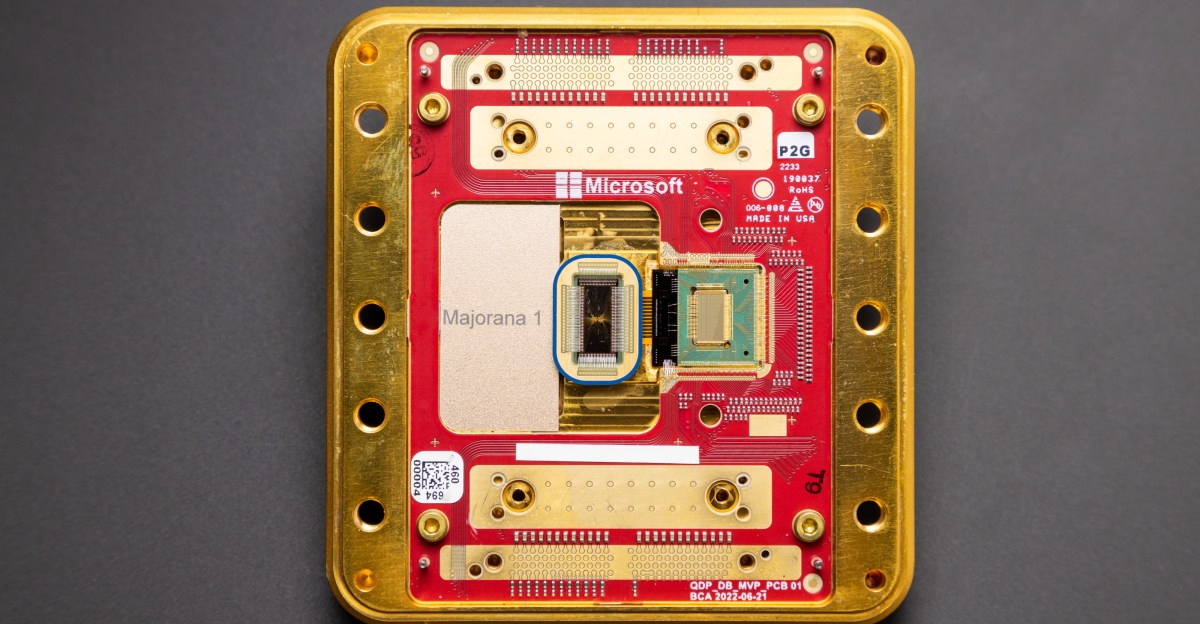Microsoft Unleashes Quantum Potential with Revolutionary Majorana 1 Chip
In a groundbreaking announcement, Microsoft has unveiled its Majorana 1 chip, poised to redefine the landscape of quantum computing. This innovative technology promises to accelerate advancements in data processing and artificial intelligence, paving the way for an era of unprecedented computational power. With its unique approach to quantum mechanics and computation, the Majorana 1 chip signifies a bold leap forward in the quest for reliable quantum systems.
Understanding the Majorana 1 Chip
The Majorana 1 chip is named after the theoretical particles known as Majorana fermions, which are their own antiparticles. These elusive particles are vital to the development of topological qubits, a foundational element for stable quantum computers. Unlike traditional qubits, which are susceptible to environmental noise and interference, topological qubits promise enhanced stability and error resistance.
Microsoft’s research has focused on creating a quantum computer that can perform calculations faster and more accurately than classical computers. The Majorana 1 chip employs a hybrid approach, combining the principles of quantum mechanics with advanced material science. By leveraging the unique properties of Majorana fermions, Microsoft aims to build a platform that can support scalable quantum computing applications.
Key Features of the Majorana 1 Chip
- Topological Qubits: The chip’s foundation rests on topological qubits, which offer greater stability than traditional qubits.
- Enhanced Error Correction: The nature of Majorana fermions allows for better error correction, crucial for practical quantum computing.
- Scalability: Designed to be scalable, the Majorana 1 chip can potentially support large quantum systems.
- Integration with Classical Systems: The chip can work alongside existing classical computing systems, facilitating a smoother transition into quantum computing.
The Impact on Quantum Computing
The release of the Majorana 1 chip marks a significant milestone in the development of quantum computers. Historically, one of the major hurdles has been the fragility of qubits, which can easily lose their quantum state through interactions with the environment. This phenomenon, known as decoherence, has limited the practical use of quantum computers.
With the Majorana 1 chip, Microsoft is tackling this challenge head-on. The topological qubits are less sensitive to external disturbances, making them more robust for computations. This improvement could lead to more reliable quantum calculations, opening doors to a variety of applications in fields such as cryptography, drug discovery, and complex system modeling.
Applications of the Majorana 1 Chip
The potential applications of the Majorana 1 chip are vast and varied. Here are a few areas where this technology could have a significant impact:
- Artificial Intelligence: Quantum computing can enhance machine learning algorithms, allowing for faster data processing and improved model training.
- Drug Discovery: Quantum simulations could revolutionize the pharmaceutical industry by enabling researchers to model molecular interactions at an unprecedented scale.
- Optimization Problems: Industries such as logistics and finance could benefit from quantum computing’s ability to solve complex optimization problems more efficiently.
- Cryptography: Quantum computing has the potential to break traditional encryption methods, pushing for new paradigms in secure communication.
The Road Ahead: Challenges and Opportunities
While the Majorana 1 chip represents a major step forward, the journey to fully functional quantum computing is fraught with challenges. One of the main obstacles is the need to develop a comprehensive ecosystem that can support quantum applications. This includes not just hardware like the Majorana 1 chip, but also software, algorithms, and a skilled workforce capable of working with this advanced technology.
Moreover, as quantum computing technology evolves, ethical considerations will arise, particularly in areas like data privacy and security. Stakeholders will need to address these concerns proactively to ensure that advancements benefit society as a whole.
Microsoft’s Vision for the Future of Quantum Computing
Microsoft has long been a proponent of quantum computing, investing heavily in research and development. The introduction of the Majorana 1 chip is part of a broader vision to create a quantum ecosystem that integrates seamlessly with existing technologies. By focusing on topological qubits, Microsoft aims to lead the industry in creating a reliable and scalable quantum computing platform.
In conjunction with the Majorana 1 chip, Microsoft continues to develop the Azure Quantum platform, which offers tools and resources for developers to build quantum applications. This holistic approach not only highlights Microsoft’s commitment to quantum technology but also encourages collaboration across various sectors, from academia to industry.
Conclusion: Embracing the Quantum Revolution
The unveiling of the Majorana 1 chip is more than just a technological milestone; it signifies a turning point in the quest for practical quantum computing. Microsoft is at the forefront of this revolution, pushing the boundaries of what is possible and inspiring a new generation of innovators and researchers.
As we stand on the cusp of a quantum era, the implications of the Majorana 1 chip extend far beyond computing. With its potential to transform industries and solve complex problems, the chip embodies the promise of a future where quantum technology can enhance our understanding of the universe and improve our daily lives. The road ahead may be challenging, but with groundbreaking innovations like the Majorana 1 chip, the possibilities are indeed limitless.
See more Future Tech Daily

